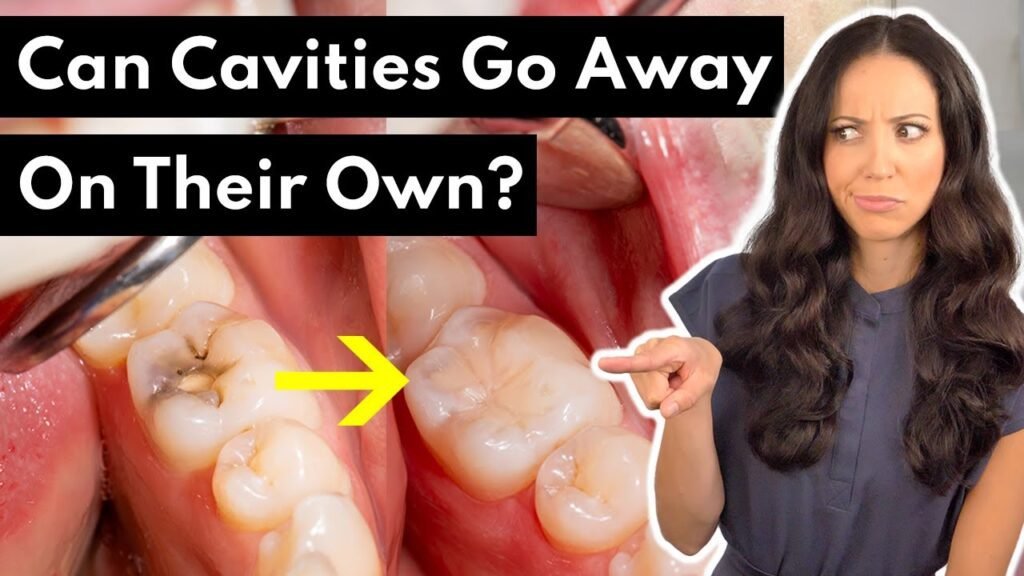Can a Cavity Heal on Its Own?

Do cavities go away on their own? If you've ever wondered whether a cavity can disappear without treatment, you're not alone. In this article, we'll explore the common misconceptions surrounding cavities and provide expert insights on how to effectively address them. So, sit back, relax, and let's clear up the confusion once and for all.
Can a cavity heal without treatment?
Unfortunately, cavities cannot heal on their own, especially once they have progressed beyond the early stages of formation. If you start experiencing pain in a specific tooth, it is a clear indication that the cavity has reached a point where professional dental treatment is necessary. It is important to seek help from a dentist to prevent further damage and alleviate any discomfort.
Can brushing make a cavity disappear?
Did you know that brushing your teeth regularly can actually help prevent cavities from forming? By brushing multiple times a day with a fluoride toothpaste, you can potentially reverse a cavity that is just starting to develop. However, once a cavity has fully formed and has been present for a while, simply brushing may not be enough to make it disappear.
While brushing is an essential part of maintaining good oral health, it is important to remember that it cannot magically make cavities vanish. Once a cavity has progressed to a certain point, it typically requires professional intervention from a dentist to properly treat and restore the affected tooth. So, while brushing can help prevent cavities, it may not be enough to eliminate them entirely once they have fully developed.
In conclusion, while brushing can help prevent and potentially reverse early-stage cavities, it may not be enough to make an established cavity disappear completely. It is crucial to practice good oral hygiene habits, including regular brushing and flossing, to maintain a healthy smile and prevent cavities from forming in the first place. Remember to schedule regular dental check-ups to catch any cavities early and address them before they worsen.
How long is the duration for a cavity to disappear?
If you're wondering how long it takes for a cavity to heal, the answer is that it can't be reversed overnight, or even in a couple of weeks. However, with proper treatment and care, a cavity can be remineralized in a few months. In most cases, it's reasonable to expect remineralization to take effect within three to four months. So, while it may not happen overnight, with patience and good oral hygiene, a cavity can be healed within a reasonable time frame.
Unveiling the Truth: Can Cavities Really Heal Themselves?
Are you tired of dealing with painful cavities and costly dental procedures? Well, what if we told you that cavities have the potential to heal themselves? Recent research has shown that the enamel on our teeth has the ability to remineralize and repair small cavities on its own. By maintaining good oral hygiene habits and a balanced diet, you can help facilitate this natural healing process.
While it may seem too good to be true, the concept of cavities healing themselves is not as far-fetched as it may sound. By promoting saliva production through chewing sugar-free gum or consuming foods high in calcium and phosphates, you can create an environment in your mouth that is conducive to remineralization. Additionally, using fluoride toothpaste and receiving regular dental check-ups can further support the healing of cavities and prevent future decay.
So, the next time you feel a twinge of pain or sensitivity in your teeth, remember that cavities may have the potential to heal themselves. By taking proactive steps to promote remineralization and practicing good oral hygiene, you can help your teeth stay healthy and strong. Embrace the power of your body's natural healing abilities and say goodbye to painful cavities for good.
The Power of Self-Healing: Debunking Myths About Cavities
Are cavities really as scary as we think? Contrary to popular belief, our bodies have an incredible ability to heal themselves. The power of self-healing is often underestimated when it comes to dental health. By debunking myths about cavities, we can empower ourselves to take control of our oral health and facilitate the natural healing process.
One common myth about cavities is that once you have one, it's irreversible. However, with proper oral hygiene and a healthy diet, our bodies can repair minor cavities on their own. By maintaining good dental habits, such as regular brushing, flossing, and avoiding sugary foods, we can support our body's natural ability to heal and prevent further decay.
Understanding the power of self-healing when it comes to cavities can revolutionize the way we approach dental care. Instead of relying solely on invasive treatments, we can work with our bodies to promote healing from within. By staying informed and proactive, we can dispel misconceptions about cavities and embrace the potential for natural restoration and renewal.
In conclusion, it is crucial to address dental cavities promptly to prevent further damage and discomfort. Ignoring a cavity will not make it go away on its own, and it is important to seek professional dental care to effectively treat the issue. By practicing good oral hygiene habits and visiting the dentist regularly, individuals can maintain a healthy smile and prevent future cavities from developing.